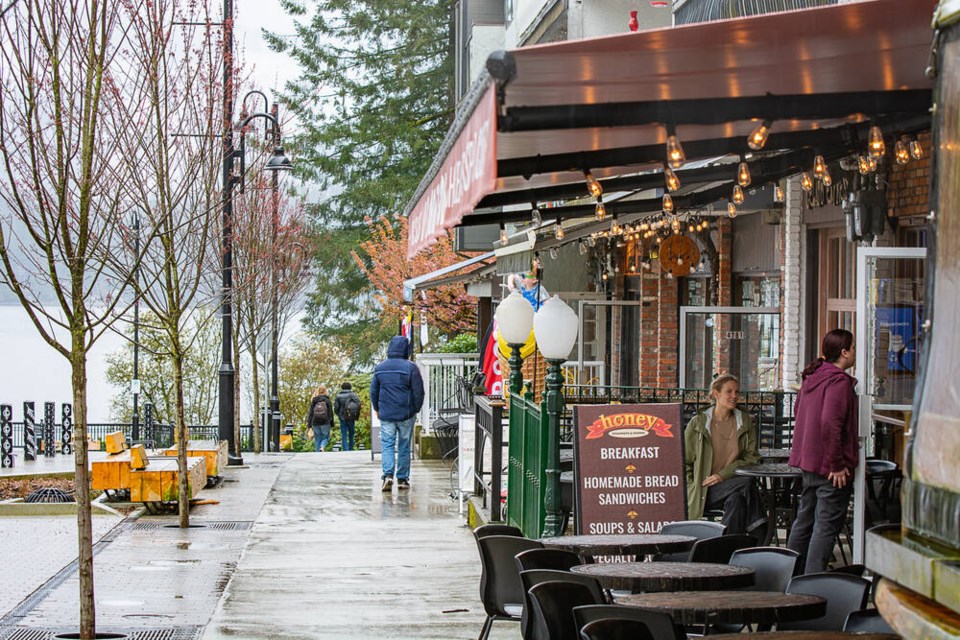High rents, combined with limited commercial space and transit options, have made the District of North Vancouver a challenging space for some businesses to operate in.
Those challenges and others have been prioritized by municipal staff in the district’s new economic development strategy, which was unanimously approved by council at a meeting on May 6.
With the plan’s approval, an estimated $230,000 in new annual funding will go toward implementing a number of objectives over the next five years. Priorities were identified through consultation with companies by the district’s business task force, and communicated in a workshop with district staff in March.
Emerging from the pandemic, staff predict that the outlook for economic growth in the district is strong across all major employment categories. The number of jobs tied to employment land in the district is expected to grow by more than 11,000 between 2021 and 2051, requiring around 4.2 million square feet of additional space over that time frame.
An analysis by staff determined that a large portion of this growth can be accommodated in the district’s town and village centres, and industrial areas. But “a suite of land use and zoning policies are needed to secure the appropriate form and density of industrial, commercial and institutional space required to meet employment demand,” reads a staff report on the strategy.
The first of four economic priorities acknowledges the high demand for employment space, while recognizing the supply is nearly fully utilized. Part of the solution involves encouraging more first-floor retail in mixed-use developments, while introducing second-storey offices along transit-oriented corridors.
Major industrial sites should be protected from subdivision, staff added.
The second objective would have the district improve business services. That includes establishing a one-stop business concierge service to help firms navigate licensing and permitting, as well as creating an online portal to access these services.
The other two priority areas are supporting transportation and housing for employees, and cultivating “great spaces.”
Rapid transit to North Shore would be 'total game changer' for economy
Regarding the services issue, there used to be a person working at the district’s office who could issue a temporary electrical or plumbing permit within a few hours, said Coun. Lisa Muri.
“I’ve heard stories that it’s up to a week now,” she said. “That is just not acceptable to be there. We need to change that.”
When it comes to creating great spaces, Coun. Jordan Back said the district can be more intentional and proactive.
“In terms of the actions, I do see a lot of needs assessing and gap analysis instead of just doing some basic things,” he said. “There’s basic things that we can do: hire an event co-ordinator and identify two or three key events that we want to introduce to each of our town centres and just make them better places – let’s not study it for three more years.”
Coun. Jim Hanson underscored how important transit is to improving the business climate.
“Securing rapid transit to the North Shore would do more for the business environment of the district than any other single initiative,” he said. “It would be a total game changer.”




